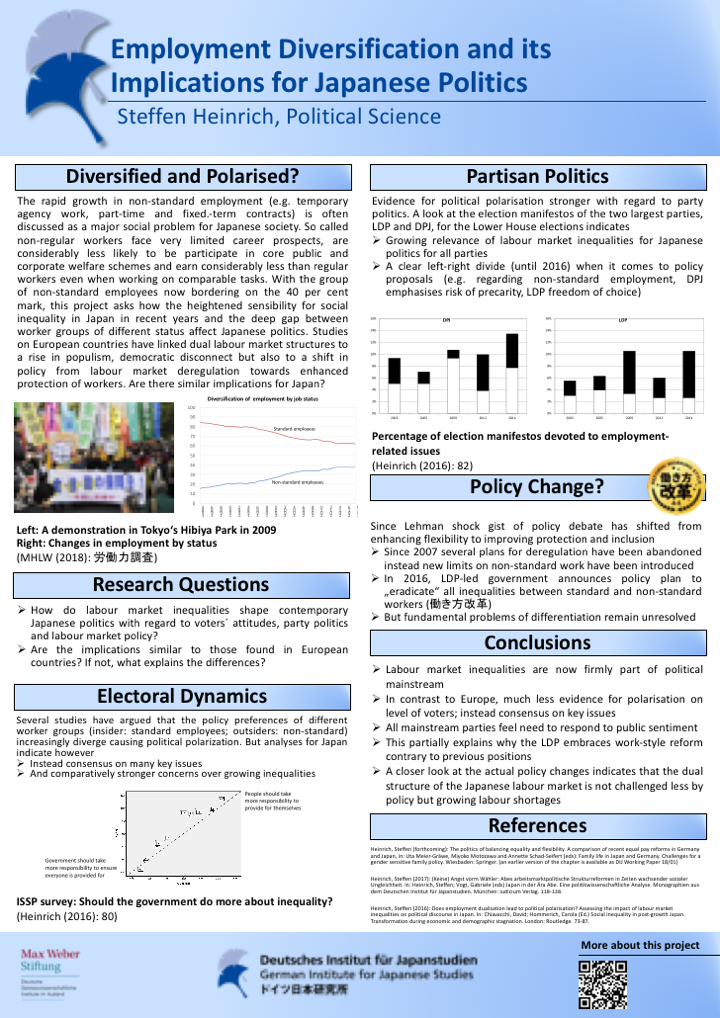Research Overview
Diversification of Employment Forms and its Implications for Japanese Politics:

English, PDF (1,1 MB)
The political consequences of employment diversification in Japan
February 2015 - July 2019
Several studies have argued that the dramatic increase in non-standard work (e.g. temporary agency work and solo self-employment) seen in many advanced democracies, results in conflicts and diverging political interests within labour. Depending on their employment status, workers may have contrary demands and political preferences that policymakers find increasingly difficult to reconcile. This polarisation of workers could therefore have far-reaching implications on how policymakers approach employment and social policy, taxation and redistribution. As there is still little research on Japan even though non-standard employment forms now make up almost 40% of total employment, the political implications of employment diversification are still not well understood in the Japanese context. This project compares the status and level of social security of different groups of workers and investigates how these differences affect political and policy preferences of workers as well as policy-making processes and policy output.